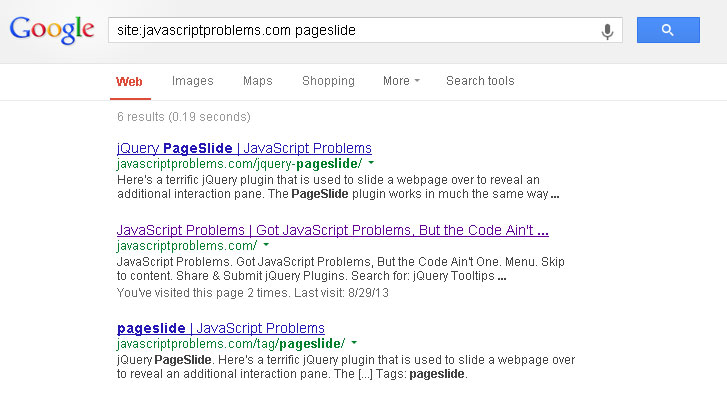Two Essential Search Query Operators

The search engines are digital treasure troves of information, but not just for end-users. SEO workers can also use the popular search engines to understand what users see (and experience) as they encounter website listings on the search results pages.
Search query operators are not a replacement to the information available through the Webmaster Tools products of Google and Bing. Instead, the two simple and straightforward search query operators listed below serve as a quick (and as you will see, meaningful) way to understand what your competitors are currently up to, how your own SEO campaigns are performing and even expose opportunities that your team/enterprise can capitalize upon for building inbound links.
site:
With the site:[query], Google restricts its search results to an individual site or specific domain. This is useful for SEOs looking to find out which and how many of their sites' pages are in the index and how they appear (for themselves and their competitors). For example, a test site I created a few months ago (JavascriptProblems.com) is included in the index and shows how many of its pages are there (which can then also be cross-referenced as verification/proof that Webmaster Tools is accurate). The search operator can also be used in conjunction with basic search operators (e.g. + or -) to find keywords within a particular website. So if a developer wanted to submit a jquery plugin for review to the site, they might want to use site:javascriptproblems.com submit and/or check to make sure that a similar resource has been covered in the past (as seen in the second screenshot below), referencing a specific post(s) within a link request message.


link:
The link:URL query displays pages that point directly to the URL, a good initial indicator of how well and where a competitor is building links (essentially, insights into a Web marketing strategy if you will). It's very common for search engine optimization platforms to provide this important functionality but since Google and Bing provide the functionality for free (although not nearly in as much depth typically and certainly not in as convenient a way) digital marketers might as well use it. The link:url search query operator provides a true look into your own and your competitor's link building strategies. For example, you can see that we've gained a few links over the years from our support of WebAwards.org. If you knew that information before launching a campaign, it would likely serve your enterprise very well.

While many other search operators exist to help digital marketers explore the search results index, these two alone provide a terrific start. Do you use other search query operators in your day-to-day SEO efforts? If so, share them with Website Magazine and its readers by submitting a comment below!









